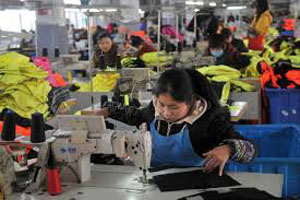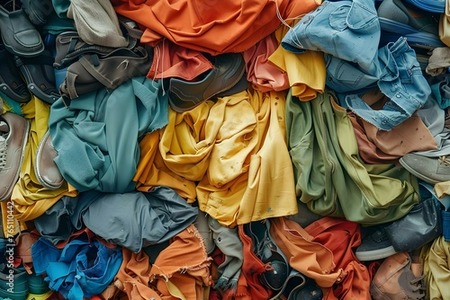
China to invest billions of dollars in textile factories to create 1mn jobs by 2023
YarnsandFibers News Bureau 2015-02-20 13:00:00 – BeijingChina has assured to end a costly stockpiling program that has artificially exaggerated cotton prices. The Xinjiang Production and Construction Corps (XPCC) reluctant to accept the current weak market price, has urged the government to buy part of its crop and store it in state reserves, said two trade sources with knowledge of the issue.
XPCC, also known as the army corps, or 'bingtuan', has become a sort of state within a state and gained a dominant role in industries such as cotton, where it employs about 200,000 mainly Han Chinese on some of Xinjiang's best land.
According to Tom Cliff, a scholar at the Australian National University, cotton is closely associated with land usage, ownership, employment and Han in-migration.
China has agreed for subsidies to help cushion the impact of ending stockpiling, but the total amount is unclear and with the local cotton price plunging any threat to the industry could be a fresh source of competition for jobs.
Beijing has also assured to invest billions of dollars in textile factories in Xinjiang, in the hope of creating 1 million jobs by 2023, but there are concern that Uighurs could be overlooked for many of the jobs.
China's National Development and Reform Commission (NDRC), which is leading agriculture reform, reiterated in January it would stick to plans to end stockpiling and let the market dictate demand.
China previously acquired almost all of China's cotton at high prices and then auctioned it off to textile firms. But it incurred huge costs and left masses of fiber unsold in reserves.
Its new policy has already caused prices to plunge and some experts say that a subsidy - a replacement for stockpiling - will not be enough to encourage farmers to keep growing.
XPCC, which produces almost 30 percent of China's cotton, has been keeping its prices at least 500 yuan ($80) per ton higher than other ginners, limiting sales.
According to one of the China-based trade sources, normally XPCC have sold everything by March. But now they're out of the market and not competing. This means the group may have to slash its price later in the season if the state doesn't intervene, putting pressure on benchmark local prices that have already lost a third of their value since September.
This could also weigh on international prices, with the market counting on demand from China to support prices that last month traded near 5-1/2 year lows.
Liang Dongya, general manager of XPCC's cotton and jute division, told a conference last month the group had sold less than 400,000 tonnes of a 1.76 million ton crop at end December. He said that the poor sales should not be blamed on high prices, but were due to a "very serious" reduction in demand.
The U.S. Department of Agriculture expects China'a cotton consumption to be 7.7 million tonnes in 2014/15 but some believe it could be as low as 6.5 million tones. Production, on the other hand, is seen between 6.2-6.5 million tonnes and, with about 1.5 million tonnes of fiber likely to be imported, bulging stocks may grow further.
Market Intelligence
Ask for free sample Report

experience
Customer Base
dedicated team
Countries Served Worldwide









